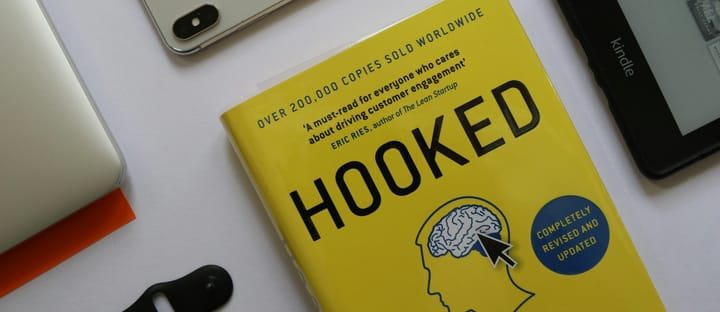Hormone therapy may protect the mind

Estrogen plays an important role in brain health throughout a woman’s life. This hormone supports the brain’s ability to adapt and form new connections - and much more.
But measuring brain estrogen levels directly in living people is quite difficult. So it's not easy to find out exactly how our levels of estrogen affect the brain and mind, in puberty, pregnancy, menopause, in sickness and health.
Instead, researchers have looked at a woman’s reproductive history and hormone use, such as birth control pills and menopause therapies, as a reflection of her lifetime exposure to estrogen.
Studies have shown that women who go through menopause suddenly due to surgery that removes the ovaries, especially at a young age, tend to have a higher risk of memory and thinking problems later in life.
However, taking estrogen therapy soon after such surgery can help reduce this risk. Timing seems to be critical—starting hormone therapy near the time of menopause appears to be better for the brain than starting it much later.
Hormones and brain performance
The IGNITE study explored how different aspects of reproductive history and hormone use affected thinking in a group of 461 women aged 65 to 80. The researchers also tested the cognitive abilities of the participants.
Over 20 percent had undergone oophorectomy, a surgery to remove the ovaries. About two-thirds of these women had the surgery before natural menopause, and most began hormone therapy soon after. Among this group, hormone use was linked to better scores in areas like working memory, visual-spatial ability, and remembering past events.
Interestingly, having the ovaries removed before menopause was not in itself associated with poorer thinking skills, as long as the women had used hormone therapy.
This supports the idea that hormone treatment, if started around the time of surgery, can protect the brain from harm caused by a sudden drop in estrogen.
Birth control use and cognitive benefits
Beyond menopause therapies, the use of birth control pills during young adulthood also seems to have lasting effects on the brain. In a positive way, that is.
In the IGNITE study, three-quarters of the women had used birth control pills, starting on average in their early twenties and continuing for about six years.
This use was linked to better performance in several areas: general thinking ability, memory, and the ability to focus and plan. How long women used the pills or the age they started did not seem to make a big difference.
These results are in line with earlier studies suggesting that exposure to estrogen earlier in life may help keep the brain healthier in older age.
Though birth control is primarily used for family planning, its protective long-term effects on brain function are now being recognized as another area worth studying.
Menopausal hormone therapy: A Mixed Picture
When it comes to hormone therapy during menopause, the results were less clear.
Less than half of the women in the study had ever used menopause hormone therapy, and only a few had used it recently. Among those who did treatment typically lasted less than three years.
After adjusting for age, education, and other factors, the study found no strong link between menopause hormone therapy and performance in any thinking domain.
This supports recent reviews suggesting that, overall, menopause hormone therapy does not boost global cognitive function.
The role of genetics - how did your mum's brain work?
Another layer of complexity comes from genetics. The APOE4 gene is the most well-known risk factor for Alzheimer’s disease, and it affects women more than men.
In this study, about one-third of the participants carried the APOE4 gene. As expected, these women showed worse memory performance and lower general thinking scores than those without the gene. That in itself is super interesting ..
The researchers tested whether having this gene would change how hormone use affected thinking ability. However, no significant interactions were found. In other words, hormone use or reproductive history did not seem to protect APOE4 gene carriers from mental decline.
This may be because the study only included healthy older women who were fit enough to exercise and undergo brain scans. If women with poorer cognitive function had been included, hormone therapy might have shown different effects.
Studies targeting this group of women may be needed to clarify whether genetics and estrogen exposure combine to affect long-term brain health.
Looking forward: Estrogen, memory, and brain protection
So many questions remain. But the IGNITE study adds valuable knowledge about how reproductive history and hormone exposure across a woman’s life can influence her thinking ability later on.
It confirms earlier findings that sudden menopause from surgery can harm brain function if not followed by timely hormone therapy. It also strengthens the case that birth control use during young adulthood may provide unexpected brain benefits later in life.
Importantly, this study used a wide range of cognitive tests, not just the memory tests often used in Alzheimer’s research. It also included a broad sample of women, which helps make the results more relevant to the general population.
As researchers continue to explore how estrogen affects brain aging, more focus is needed on long-term studies and better ways to track hormone exposure across the lifespan.
About the paper that inspired:
First Author: Amber Watts, USA
Published: Frontiers in Aging Neuroscience, April 2025
Link to paper: https://www.frontiersin.org/journals/aging-neuroscience/articles/10.3389/fnagi.2025.1524474/full
Pssst - remember to subscribe to our free newsletter!




Comments ()